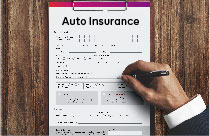Are you new in Texas? Have you always lived in Texas? If you didn’t know, the Car Insurance here is quite different from other states in the U.S. Like others, it comes with its own unique policy and perks in accordance to its laws.
This article will serve as a guide to help introduce you to this Texas-style car insurance policies. By the end of this article you should have good knowledge about financial coverage for your wheeled property, as well as the legal boundaries. We will be taking apart the mystery of car insurance and exploring the inner workings.
Do I Really Need Insurance?
Once, a thought might come to you: “Do I really need insurance? Not everybody who drives has insurance. It’s my money after all.”
Well, here’s what happens when you don’t get insurance. First, you break the law. Also if you get caught, as a first time offender, your fines will lead up to $350, minus other charges that will be directed at your driver’s license. When you repeat this offense, you rack up higher fines and your license might get suspended. Doesn’t sound like it’s worth the risk, does it?
- Understanding Texas Auto Insurance Laws
Texas has its own laws regarding insurance. For instance, Texas is one of the fault states that places responsibility on whoever causes the accident. Moreso, this rule has a sister rule, “Comparative fault” which puts responsibility on you if more than 50% of the fault is discovered to be yours. So you are not entitled to any damages from the other driver. While insurance companies can offer you Pip, you have every right to turn it down, so long as you do it writing.
The importance of understanding these laws is in the decision making process you will find yourself in with Texas AutoInsurance laws.
- What Are the Requirements for Texas Car Insurance ?
The first no-brainer requirement of the driver by the state is having an insurance. With that out of the way, the State of Texas requires two types:
- Bodily Injury Liability : This is for the event where you are at fault for an accident that makes someone else sustains injuries. This is liability covers their treatment. Should the other person decide to sue you for damages, this insurance covers your legal fees. This costs a yearly $30,000 for an individual. $60,000 for each accident.
- Property Damage Liability: This covers the destruction of the other person’s property. Should you run into someone’s property and causing damages, this insurance takes care of it. Property Damage Liability fees are $25,000 per accident.
This whole coverage is commonly referred to as 30/60/25.
This is how you get started, with this starter price arrangement, you are set to hit the streets of Texas in your car.
However this is the minimum coverage, so you’re not absolutely protected.
3. Are There Any Other Coverage Options?
The 30/60/25 coverage is a good way to get into the Texan system of car insurance, but it is limiting. Accidents may cause more damages than they can cover. Here are other options when selecting Insurance options:
- Comprehensive Coverage: This covers damage done to your car by anything other than accidents. So if your car sustains damage from acts of vandalism, theft, and natural disasters, this type of insurance is there for you.
- Personal Injury Protection (PIP): Also called “No-fault Insurance” PIP takes care of your medical bills and covers for your lost time which costs you in wages if you’re a worker. It also pays for household duties that you can’t carry out yourself because of sustained injuries.
- Collision Coverage : When your car gets damaged in an accident this coverage ensures it’s repair and even a car replacement. If your car is leased or you’re financing it, your lender is required to provide collision coverage. It is not mandated by Texas law, but if you are leasing your car or financing it, then you may be required to buy this type of coverage.
- Uninsured Motorist Coverage: What happens if you get hit by a driver who has no insurance or whose insurance is not enough to cover you? This type of insurance exists for this situation.
If you’re not a worrier who wants to buy all these coverages and are worried you can’t afford all, good news! You are not legally required to get every one of them, but it is up to you to decide which one makes you feel most secure and stick with it.
4. What Factors Affect Your Car Insurance Rates in Texas?
The rates you get in Texas might vary and these are the reasons that may influence them
- Your Age and Gender: There are different rates based on age and sex. If you are a young male, then you’re paying more for insurance. If you’re a young female driver, you’re paying lower rates than the young man above.
- Type of Vehicle: The brand, model, year of production and physical attributes of your car can be a factor influencing the rates you may be charged with.
- Location: Where you reside in Texas plays a big role in deciding your Insurance rates.
Insurance rates typically are lower in small states such as Georgetown or Wimberley. But if you live in a bigger city such as Dallas or Houston you will find higher rates. And this is for obvious reasons: chances of accidents happening and vandalism and theft rates.
- Credit Score: In Texas, your credit scores is used to determine how much you can pay for insurance.
- Your Driving Record: Do you have a clean driving record? Then you should expect to see lower rates. As mentioned earlier, if you don’t have good record, such as a repeat offender, you’re likely to be charged higher rates for insurance.
- Insurance Plans: The coverage plan you subscribe to reflects on your rates. So if you go for Bronze, you will not pay as high as you would if you chose Silver. If you chose Gold plan, your rates will be the highest as it means the highest plan. The higher the plan the higher security you get for yourself and your car.
When you get used to these factors you learn to do what action to take should you not be satisfied with the rates given to you.
- Are There Any Ways to Cut Auto Insurance Costs in Texas?
Now for the part you’ve all been waiting for – how to save some of your hard-earned money on car insurance in Texas. Here are some tips:
- Always Look Out For Discounts: There are always discounts. Driving records, credit score, car maintenance and all are rewarded with discounts. Position yourself for discounts.
- Keep a Higher Deductible: Typically, if you get a lower premium the higher the deductible. So your monthly premium plan affects your deductible.
- Explore Your Providers: Different providers have different quotes. Don’t just go with the first one you are given. Explore your options and pick the deal best for your financial plans.
- Improve Your Credit Score: credit score impacts your insurance rates, so improving it will help you save money.
- Consider Usage-Based Insurance: There are programs that are dedicated to keeping records of your car usage. Things like your driving habits are noted and some insurers give discounts based on these findings.
Mind you, cheaper doesn’t mean you have gamed the system.
- What If I Have A Poor Driving Record?
Poor Driving Record a long wit other limiting factors will keep you from securing proper autoinsurance in Texas. However, there is hope! The Texas Automobile Insurance Plan
Association (TAIPA) helps flagged drivers get insurance. However, insurance gotten through this route is pricey compared to the traditional alternative.
Conclusion
So, that’s it for Auto Insurance in the state of Texas! Car insurance is a way to give to the society as it makes you a more responsible citizen Hopefully this article has helped you in deciding how to go about your choice of Car Insurance.





